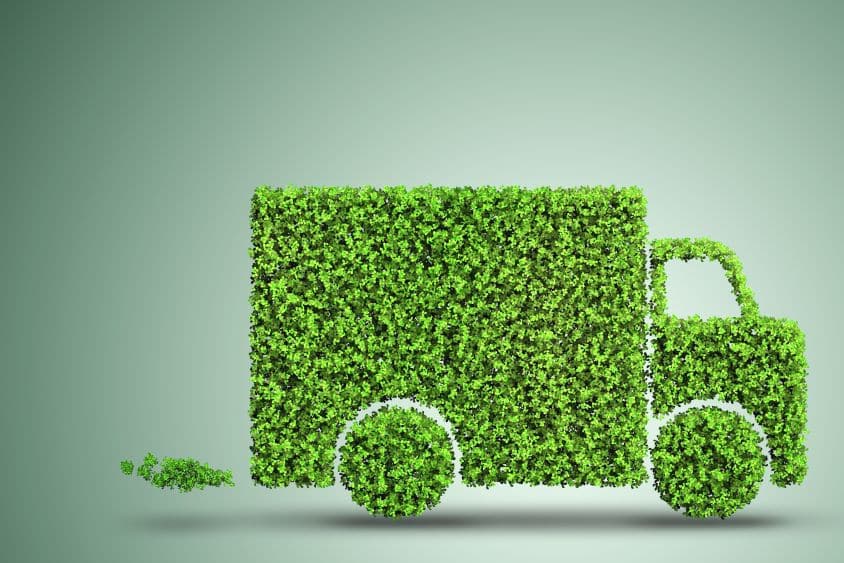Alternative fuel sources
Written by: Simon Pavey, Last updated:5th April 2023

The collective effort to move away from non-renewable fuel sources is of the highest importance as we look to cut emissions and tackle global warming. Alternative fuel sources are developing rapidly and increasing in availability.
In this blog we’ll take a look at seven alternative fuel sources and how they are produced.
Biodiesel
Made from a diverse range of naturally grown and recycled resources including waste cooking oil, tallow, vegetable oil and animal oils, Biodiesel is one of the most widely used alternative fuels. Produced to strict industry standards, approved biodiesel meets EN 14214 specification in the UK and can be used in a vast range of diesel engine vehicles.
How is biodiesel made?
The vegetable and animal fats used to make biodiesel are reacted with short-chain alcohols such as ethanol or methanol.
Is biodiesel a good choice for fleet vehicles?
Biodiesel offers an affordable fuel alternative with increasing availability and superior emissions reduction to a lot of other fuel alternatives. While other fuel alternatives reduce performance as a trade for more environmentally friendly operation, biodiesel retains high performance making it a great alternative for fleets.
Hydrogen
Hydrogen is another great alternative fuel source growing in popularity and availability. When used, the only by-product of hydrogen fuel is water, making it an attractive alternative to combustion fuels. An incredibly versatile biofuel, it can be used to power cars and houses, used in portable power supplies and for many more uses.
How is hydrogen fuel produced?
Hydrogen fuel is produced using a number of methods including natural gas reforming, electrolysis, biological processes and sun-driven processes. The first of these two are the most common methods used to produce hydrogen fuel.
Natural gas reforming produces hydrogen fuel by reacting steam with a hydrocarbon fuel (such as natural gas, renewable liquid fuels and more) to produce hydrogen. Currently, as much a 95% of all hydrogen is produced using natural gas reforming.
Electrolysis separates water into oxygen and hydrogen and is the second most common method of acquiring hydrogen for fuel purposes.
Renewable Natural Gas
Commonly known as biomethane, renewable natural gases are generated from organic materials, making them a valuable alternative to their non-renewable counterparts, fossil-derived natural gases. Livestock waste or landfill waste can be processed to create these natural gases, which is then purified to create a pipeline-quality vehicle fuel.
Because of its identical nature to fossil-derived natural gases, renewable natural gas makes a great fit as a replacement to the traditional fuel types we are familiar with, and it can even be transported using the same distribution system.
How is renewable natural gas produced?
The collection and processing of natural gases will vary depending on the source material. For example, to produce natural gases from livestock waste, a biogas recovery system is used which processes animal manure through anaerobic digestion to effectively produce methane. This is then purified to removed water vapor and other impurities such as carbon dioxide and hydrogen sulphide.
Propane
Propane is a clean, nontoxic alternative to traditional fuels. While it is commonly used currently for fuelling tasks such as cooking and heating, it also has widespread use as a fuel source for vehicles such as buses, farm engines, and small vehicles like forklifts. It also benefits from a growing availability and an affordable price.
How is renewable propane made?
This renewable alternative fuel is created by the treatment of materials such as agricultural waste and cooking oils/fats. They are then merged with hydrogen through hydrogenolysis. What this does is purify the fuel’s energy content making it safe for use in commercial vehicles and in the home.
Is propane a good choice for fleet vehicles?
Propane makes a great alternative fuel choice for many fleets that are looking to improve their impact on the environment without sacrificing on performance. It is recognised as a safe substance and due to its cost and availability could be a good choice for vast range of different types of fleet.
Renewable Diesel
Differing from biodiesel in many ways, renewable diesel is made from waste and residues as opposed to vegetable oils, making it a resourceful alternative fuel. The process of creating renewable diesel through waste materials makes this a cleaner alternative than biodiesel and the resulting fuel is of a higher and more consistent quality.
How is renewable diesel made?
Renewable diesel is made by a variety of processes including hydrotreating, gasification, and pyrolysis. Hydrotreating is the most common way to produce renewable diesel, where the waste materials are reacted with hydrogen in high temperatures and pressure with a catalyst.
Is renewable diesel a good choice for fleet vehicles?
With renewable diesel benefitting from using the same infrastructure as traditional diesel and not impacting vehicle performance, this alternative fuel type could be a great alternative for many fleet vehicles. Not only is it increasingly available, but it also can be used in most traditional diesel engine vehicles without issue, meaning you don’t have to acquire new vehicles.
Electricity
Electricity is the alternative fuel that we are all most familiar with. Already widely used, advancements are being made constantly to improve the affordability and accessibility of electric powered vehicles. The widespread availability of electricity and the increasing availability of tools for generating renewable electricity makes this one of the best alternative fuels currently available.
How is electricity generated?
Electricity is a versatile alternative fuel because of that vast number of ways it can be generated. From wind turbines, solar panels, and wave generators to nuclear energy and coal. Renewable sources of electricity are preferable for their minimum impact on the environment.
Is electricity a good choice for fleet vehicles?
Electricity makes a great choice for alternative fuel for fleets so long as you are prepared to invest in EVs and the charging infrastructure to support them. The wide availability of electricity means that this alternative fuel source is accessible and inexpensive, however you will need to be prepared to front the initial cost. The UK government offers schemes to help support the uptake of EVs including the Workplace Charging Scheme.
Ethanol
Ethanol is made from renewable plant materials and is already present in a lot of diesel and petrol. Made from feedstocks, the alternative fuel is blended with traditional fuels like the aforementioned diesel and petrol to help cut the amount of these fuels used. Whilst it does have a lower energy output, these ethanol gasoline blends help to reduce fuel consumption and increase fuel security, which helps to keep costs down.
How is ethanol produced?
Ethanol is produced by processing feedstocks such as grain, sugar cane or woodchips. Using a thermochemical conversion process, syngas is produced. This is then reformed with a catalyst to produce ethanol. This can then be mixed with gasoline to extend their potential.
Is ethanol a good choice for fleet vehicles?
Ethanol is already used in most petrol sold in the UK, with blends offering either a 10% or 5% ethanol quantity. This means your petrol fleet vehicles are already using ethanol to a degree. Ethanol does decrease the efficiency of vehicles slightly, but the pay off of using a higher ethanol percentage in petrol is a huge decrease in emissions.
Covering the cost with Fuel Card Services
Alternative fuels have come on leaps and bounds over the years and the potential is ever growing. These alternative fuels will all have important roles to play in cutting global emissions as we move toward NetZero50.
Despite the potential, currently many of these alternative fuels are not readily available nor are many common private and fleet vehicles compatible with them. Electricity remains the best and most available alternative fuel source and one worth investing in.
If you have, are in the process of, or are considering electrifying your fleet, then setting your fleet up with the right electric charge cards means you can reduce your carbon emissions and reduce your costs. You can browse our range of EV charge cards here, or if you need guidance choosing the right card for your needs then get in touch today.
back



